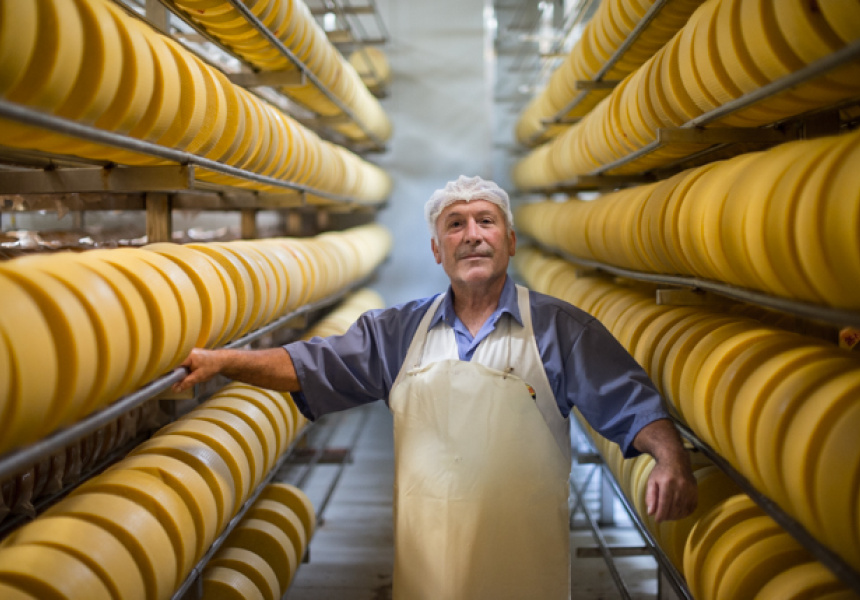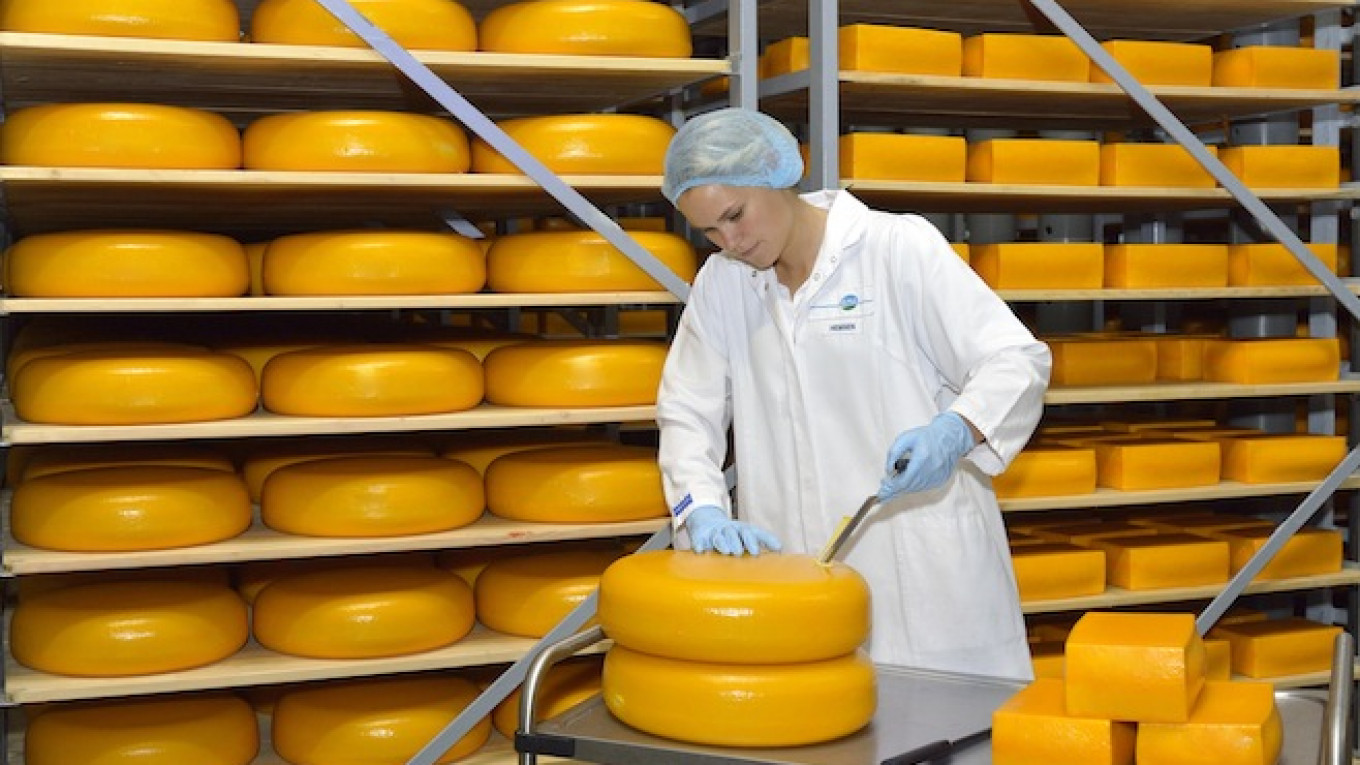An Extensive Appearance at Cheese Production: Components, Methods, and the Future of Craftsmen Cheeses
The complex process of cheese production is an interesting convergence of art and scientific research, where top notch milk, rennet, and particular microbial cultures function as fundamental aspects. Traditional strategies, such as salting and aging, are complemented by modern developments that respond to advancing consumer choices. As the market increasingly focuses on sustainability and transparency, the future of artisan cheeses assures to show both heritage and development. Understanding the nuances of these practices elevates compelling inquiries about the instructions of cheese production and its ramifications for quality and authenticity. What exists ahead in this progressing landscape?
Key Active Ingredients in Cheese Manufacturing
A variety of essential ingredients play a critical duty in cheese production, each contributing to the end product's flavor, texture, and character. The key ingredient in cheese is milk, which can come from various sources, consisting of cows, goats, and lamb - cheese makers melbourne. The sort of milk utilized dramatically affects celebrity's preference and uniformity; as an example, cow's milk usually generates creamier cheeses, while goat's milk usually produces tangy varieties
One more important component is rennet, an enzyme utilized to curdle the milk, separating it into curds and whey. The source of rennet can be animal, vegetable, or microbial, each giving distinctive characteristics to the cheese. Cultures, including certain pressures of germs, are likewise integral to the cheese-making process. They ferment lactose into lactic acid, assisting in taste development and texture.
Salt not just enhances the flavor yet likewise serves as a chemical, inhibiting the development of undesirable microorganisms. Additionally, various flavoring agents, such as herbs, seasonings, or even smoked wood, can be contributed to create special artisanal cheeses. Together, these components develop the foundation of cheese production, setting the phase for varied and abundant cheese varieties.
Typical Cheese-Making Techniques
Making use of traditional cheese-making strategies, artisans worldwide protect time-honored approaches that have been given via generations. These techniques commonly emphasize using top notch, locally sourced milk, which is main to the unique tastes and structures of artisanal cheeses. The procedure generally starts with the careful heating of milk, adhered to by the addition of societies and rennet to help with coagulation.
As soon as the curds develop, they are cut, allowing whey to drain pipes, an important action that affects moisture web content and texture. Salting is a necessary aspect of this procedure, enhancing flavor while likewise acting as a chemical.
Aging, or affinage, is an additional crucial element, throughout which cheeses create their characteristic scents and tastes. Artisans might employ certain aging atmospheres, utilizing moisture and temperature level controls to refine the cheese's account. The commitment to these typical techniques not just sustains local economies but also adds to the rich variety of cheese varieties discovered around the world, commemorating cultural heritage and artisanal workmanship.
Modern Technologies in Cheese Manufacturing
Exactly how have technological developments changed cheese production in recent years? The integration of modern innovation has revolutionized both the effectiveness and quality of cheese production.
In addition, improvements in microbiology have enabled cheesemakers to select specific bacterial cultures and enzymes, enhancing taste profiles and boosting service life. Making use of sensing unit technology for monitoring fermentation problems has additionally come to be prevalent, permitting real-time changes to maintain optimal atmospheres for cheese aging.

These innovations not only enhance the top quality and sustainability of cheese production but also equip artisan manufacturers to preserve standard tastes while embracing contemporary effectiveness. As technology remains to evolve, the future of cheese production looks encouraging, mixing custom with advancement.
The Function of Terroir in Cheese
In the realm of cheese manufacturing, terroir plays a critical duty in specifying the distinctive features of numerous cheeses. Terroir, a French term typically related to a glass of wine, encompasses the environmental elements that influence agricultural items, consisting of dirt make-up, climate, and neighborhood plants and fauna. In cheese-making, the one-of-a-kind characteristics of the area where the milk is sourced can convey certain tastes and textures to the end learn this here now product.
For example, the grazing problems of dairy products pets substantially impact the milk's composition, affected by the kinds of yards and natural herbs available in a specific locale. This varies not only between nations but additionally in between areas within the same nation. Furthermore, the microbial neighborhoods present in the environment find out this here contribute to the fermentation processes, causing diverse accounts in flavor and scent.
Cheeses such as Roquefort, Parmigiano-Reggiano, and Cheddar exemplify just how terroir can form their identities, making them distinctive and frequently safeguarded by geographical signs. As producers progressively identify the relevance of terroir, there is a growing emphasis on sourcing local components and maintaining typical techniques, making sure that each cheese truly mirrors its origin.

Future Fads in Craftsmen Cheeses
A remarkable shift is happening in the artisan cheese industry, driven by advancing consumer preferences and technological improvements. Significantly, customers are being attracted toward special, top notch items that stress both sustainability and neighborhood sourcing - cheese factory melbourne. This fad is triggering artisan cheesemakers to introduce, concentrating on small-batch production and using typical methods while incorporating modern technology to enhance high quality and safety and security
Moreover, there is a growing passion in plant-based and alternate dairy items, pushing standard cheesemakers to explore brand-new methods, such as cashew or almond-based cheeses. This change not just accommodates nutritional constraints however likewise aligns with ecological issues regarding animal farming.
Furthermore, transparency in sourcing and production processes is becoming vital. Consumers are more educated and need traceability, motivating producers to adopt clearer labeling methods and participate in narration that highlights their methods and worths.
Conclusion
Finally, the elaborate process of cheese production combines conventional techniques with modern developments, leading to a diverse range of flavors and textures. The focus on high-grade active ingredients and the influence of terroir underscore the artistry associated with cheese manufacturing. As the market their explanation advances, an emphasis on sustainability and transparency will likely form the future of artisan cheeses, satisfying a significantly discerning customer base that values credibility and craftsmanship in dairy items.
Comments on “Cheese Store Melbourne: Your Best Destination for All Things Cheese”